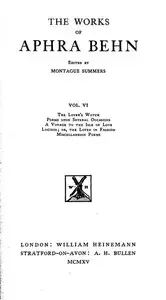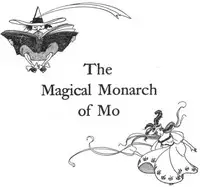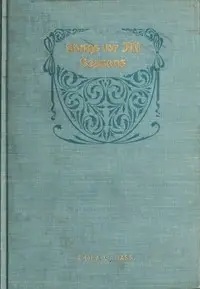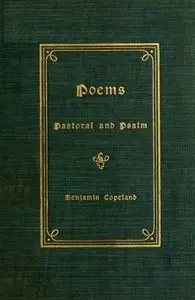"The Works of Aphra Behn, Volume VI" by Aphra Behn is a collection of literary works, likely compiled in the late 19th century. This volume features various compositions, including "The Lover's Watch," "A Voyage to the Isle of Love," and miscellaneous poems that express themes of love and relationships. Behn's writing often portrays the dynamics of love, drawing upon her own experiences in the courtly context of her time. At the start of "The Lover's Watch," we meet two noble characters, Damon and Iris, who are deeply in love but separated by circumstances. The narrative unfolds with Iris's absences prompting Damon to express his affection through letters filled with longing and poetic sentiments. The unique concept introduced by Iris is the watch she sends him, which symbolizes how he should spend his time in her absence, filled with rules for lovers marked by the hours. Her watch not only serves to keep track of time but also serves as a guide for Damon's actions and thoughts while she is away, ultimately blending themes of love, distance, and desire in an engaging manner. (This is an automatically generated summary.)

The Works of Aphra Behn, Volume VI
By Aphra Behn
"The Works of Aphra Behn, Volume VI" by Aphra Behn is a collection of literary works, likely compiled in the late 19th century. This volume features v...
Aphra Behn was an English playwright, poet, prose writer and translator from the Restoration era. As one of the first English women to earn her living by her writing, she broke cultural barriers and served as a literary role model for later generations of women authors. Rising from obscurity, she came to the notice of Charles II, who employed her as a spy in Antwerp. Upon her return to London and a probable brief stay in debtors' prison, she began writing for the stage. She belonged to a coterie of poets and famous libertines such as John Wilmot, Lord Rochester. Behn wrote under the pastoral pseudonym Astrea. During the turbulent political times of the Exclusion Crisis, she wrote an epilogue and prologue that brought her legal trouble; she thereafter devoted most of her writing to prose genres and translations. A staunch supporter of the Stuart line, Behn declined an invitation from Bishop Burnet to write a welcoming poem to the new king William III. She died shortly after.


















